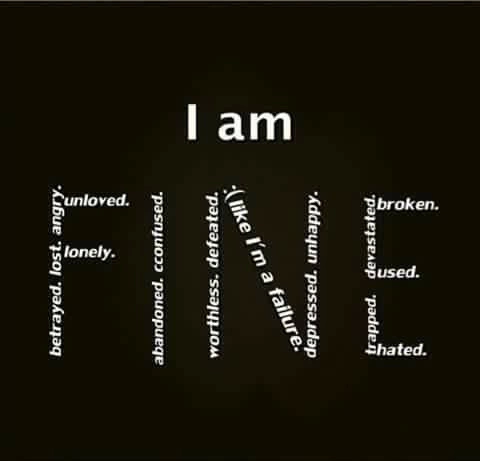Depression is a serious mental illness that affects millions of people in the United States each year. While there are many different types of depression, silent depression is often overlooked. This type of depression can be difficult to diagnose, as it doesn’t always manifest in the traditional ways. In this blog post, we will discuss the signs and symptoms of silent depression, as well as how to get help if you think you might be suffering from it.
Contents
What Is Silent Depression?

Silent depression means feeling depressed without showing it outwardly. You may feel hopeless, helpless, and alone. But you continue going to work or school and participating in your normal activities. You just don’t feel like your usual self. For instance, you may not feel like socializing or working out, but you do it anyway.
7 Behaviors That Someone is Silently Depressed

The behavior that someone is silently depressed may not be as obvious because they tend to keep it inside. Here are some behaviors that may indicate someone is silently depressed:
Withdrawing from friends and activities
Silent depressives tend to withdraw from friends and activities. They may have once enjoyed going out with friends but now prefer to stay home alone. This behavior change can be a sign that something is wrong.
Loss of interest in sex
A loss of interest in sex is another common symptom of silent depression. This may be due to low self-esteem or a lack of energy. It can also be caused by medication side effects or underlying health problems.
Changes in eating habits
Depression may also lead to changes in eating habits. Some people may lose their appetite while others may eat more comfort foods. Weight gain or loss can be a sign that something is wrong.
Problems sleeping
Depression can also cause problems with sleep. People who are depressed may have trouble falling asleep or staying asleep. They may also wake up early and not be able to get back to sleep.
Fatigue
Depression can cause fatigue. This may be due to a lack of sleep or a loss of interest in activities. It can also be caused by the physical effects of depression, such as changes in hormone levels.
Anxiety
Anxiety is another common symptom of depression. This may be due to worry about the future or fear of social situations. It can also be caused by changes in brain chemistry.
Guilt
Silent depressives may feel guilty about their condition. They may think they should be able to control their depression and that they are weak for not being able to do so. This guilt can lead to further isolation and make the depression worse.
If you or someone you know is exhibiting these behaviors, it may be time to seek help. Depression is a serious condition that can be effectively treated with therapy, medication, or a combination of both. If you think you may be depressed, talk to your doctor or mental health professional.
Other signs can indicate you’re dealing with silent depression, including:
- Feeling hopeless and helpless
- Losing interest in activities you used to enjoy
- Feeling tired all the time
- Having trouble concentrating
- Sleeping too much or too little
- Changes in appetite
- Feeling restless or irritable
- Aches and pains with no known cause
If you’re experiencing any of these signs, it’s important to reach out for help. Silent depression is a serious condition that can have a major impact on your life if left untreated.
Causes
There are many causes of silent depression that are often hard to pinpoint. It can be difficult to understand why someone who appears happy and successful on the outside may be privately struggling. Here are some common signs of silent depression:
Social withdrawal: A person with silent depression may stop hanging out with friends or participating in activities they used to enjoy. They may seem isolated and lonely, even when they’re surrounded by people.
Loss of interest: Someone with silent depression may lose interest in activities or hobbies that they used to enjoy. They may have less energy and motivation to do things.
Changes in eating or sleeping habits: A person with silent depression may start eating more or less than usual. They may also have trouble sleeping or sleeping too much.
Irritability or agitation: A person with silent depression may seem more easily irritated or agitated than usual. They may be quick to anger or snap at people.
Physical symptoms: A person with silent depression may experience physical symptoms such as headaches, fatigue, and body aches. These symptoms may not have a specific cause.
If you or someone you know is experiencing these signs, it’s important to reach out for help. Silent depression is a serious condition that can be difficult to overcome on your own. There are many resources available to help you get the support you need. Talk to your doctor.
How To Manage Silent Depression?

To manage silent depression, you need to be proactive and understand exactly what it is. You also need to create a support system of close friends or family who can help you through tough times. Here are some tips on how to manage silent depression:
Create a support system
As mentioned, it’s important to have a supportive group of people around you. These people can be family, friends, or even a therapist.
Identify your triggers
Once you know what’s causing your depression, you can start to avoid those triggers. This may mean making some lifestyle changes, such as avoiding stressful situations.
Lifestyle changes
many lifestyle changes can be made to help with silent depression.
Depression can cause a loss of appetite or an increase in cravings for unhealthy foods. Eating nutritious meals and snacks can help to improve mood and energy levels.
Exercising regularly
Exercise is a natural mood booster. It releases endorphins, which have mood-lifting effects. Just 30 minutes of moderate exercise a day can make a big difference. If you’re dealing with silent depression, consider adding more physical activity to your daily routine. Start by doing something that you enjoy, such as walking, biking, or swimming. As you get more comfortable, you can increase the intensity and duration of your workouts.
Spending time in nature
Nature has long been known to have healing effects on the mind and body. Spending time outdoors, even for just a few minutes, can help to reduce stress and anxiety levels.
Getting enough sleep
Sleep is essential for good mental health. Depression can cause insomnia, so it’s important to get enough rest. aim for at least eight hours of sleep each night.
These are just a few lifestyle changes that can help with silent depression. If you think you may be depressed, talk to your doctor. Treatment options are available and can make a big difference in your quality of life.
Talk to your doctor: It’s important to talk to your doctor about your feelings and symptoms. They can help you figure out if you’re suffering from depression and can offer treatment options. Don’t be afraid to seek professional help if you need it. There are many resources available to help you deal with depression.
Medication
Various medicines that are used to treat silent depression can also lead to weight gain. If you’re taking medication for depression and notice that you’re gaining weight, talk to your doctor. He or she may be able to prescribe a different medication. Some common antidepressants that have been linked to weight gain include:
- Tricyclic antidepressants, such as amitriptyline (Elavil)
- Monoamine oxidase inhibitors (MAOIs), such as tranylcypromine (Parnate) and isocarboxazid (Marplan)
- Selective serotonin reuptake inhibitors (SSRIs), such as fluoxetine (Prozac), paroxetine (Paxil), and sertraline (Zoloft)
- Bupropion (Wellbutrin) is an antidepressant that has been linked to weight loss
If you and your doctor decide that medication is the best course of treatment, be sure to take it as prescribed. Don’t skip doses or stop taking them on your own. Doing so can make your depression worse and lead to other problems.
Therapy
There are various therapy options available for those dealing with silent depression. Some people may find success in cognitive behavioral therapy, which can help them identify and change negative thought patterns. Others may prefer to participate in group therapy, where they can share their experiences with others who are facing similar challenges.
No matter what type of therapy you choose, it’s important to work with a qualified mental health professional who can help you develop a treatment plan that meets your unique needs. If you’re not sure where to start, ask your doctor for a referral to a therapist or counselor in your area.
Join Support Group
One of the best things you can do for yourself if you’re struggling with silent depression is to join a support group. This will allow you to meet other people who are dealing with similar challenges. You can share your experiences, learn from others, and gain valuable insights into how to cope with your condition.
If you’re struggling with silent depression, you may find it helpful to join a support group. This can be an in-person or online group of people who are dealing with similar challenges. In a support group, you can share your experiences and feelings without fear of judgment. You may also be able to get helpful advice and tips from others who have been through what you’re going through.
Conclusion
It may be concluded that silent depression is a serious problem that should not be ignored. If you think that you may be suffering from silent depression, it is important to seek professional help. Silent depression can be treated and there is hope for recovery.
If you or someone you know is experiencing signs of silent depression, don’t hesitate to reach out for help. Talk to a therapist, counselor, or doctor.
For further information and suggestions, please contact Therapy Mantra. We have a team of expert therapists and psychiatrists that can help you overcome this problem. Get in touch with us right away to learn more about our services. You may also make an online therapy session or download our free Android or iOS app.


